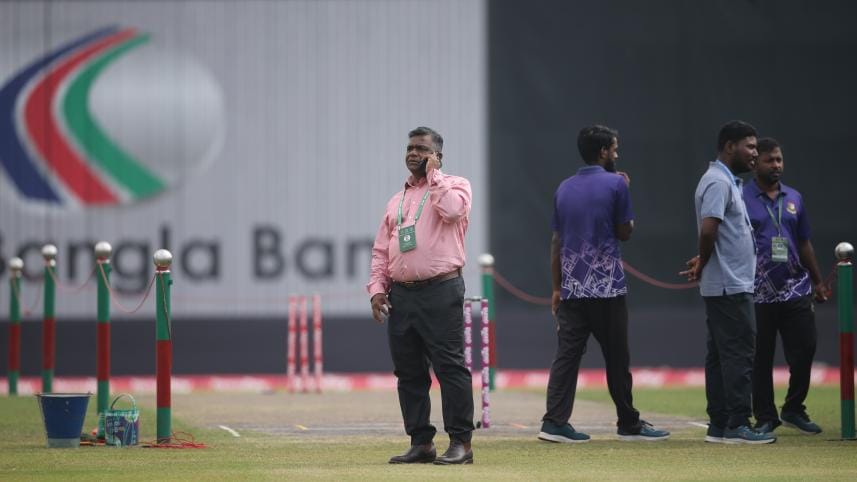Overcooked turners, undercooked faith

While walking off the ground after the post-match presentation for the third ODI between Bangladesh and the West Indies on Thursday, Bangladesh Cricket Board (BCB) president Aminul Islam Bulbul jokingly told the media personnel present there, "You can't call it a paddy field today."
Bulbul was clearly referring to the wicket used in that match at the Sher-e-Bangla National Cricket Stadium in Mirpur, which produced a one-sided game where the hosts crushed the visitors by 179 runs to take the three-match series 2-1.
The wickets for the first two games in Mirpur had drawn a lot of flak for their dark complexion, and prodigious spin.
The third ODI took place on the same pitch as the first match, which according to the broadcasters had provided 4.9 degree turn for spinners on average.
More of the same was expected on Thursday. The wicket was still devoid of grass and the soil looked dark, though not as much as it did in the previous two games.
The difference became more apparent when the match began. The ball was still gripping and turning as it had done in the earlier matches, but this time the soil was not exploding when the ball pitched, a sign that this pitch was more compact.
This small detail made a big difference as it meant that the bounce at the pitch was not as erratic as the previous two games.
Batting first, Bangladesh's openers Soumya Sarkar and Saif Hassan took full advantage of it as they judged the turn well and countered with fearless strokes to form a record-setting 176-run stand.
Although the pitch slowed up as the game progressed and Bangladesh's scoring rate dipped after the opening partnership ended, they still posted a commanding 296-8 in 50 overs.
West Indies were crushed under the weight of the target and were bundled out for just 117 by the host spinners.
Prior and even during the series, some BCB officials had said that the wicket can't change overnight. But after the Tigers lost the second ODI in a Super Over, the nature of the surface changed in just two days.
Given the Tiger's recent poor record in ODIs -- coming into this series on the back of four consecutive series losses -- the management understandably tried to exploit home ground advantage to the fullest, but in the first two games, they went overboard.
This hints at a lack of faith on the players to get the job done on a typical Mirpur surface, which already provides plenty of help for the hosts, against a side that hasn't won an ODI series in Bangladesh since 2011.
The defeat brought forth a course correction, which helped Bangladesh get a crucial win and hopefully a lesson that too much of a good thing can also turn costly.



 For all latest news, follow The Daily Star's Google News channel.
For all latest news, follow The Daily Star's Google News channel. 

Comments